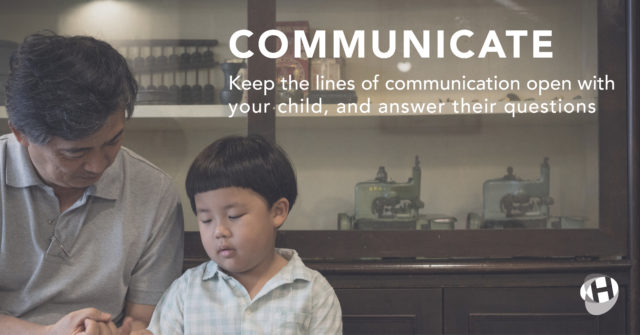“Your child has a chronic illness.”
These are words no parent wants to hear. But, for far too many families, a child with a chronic illness is a reality. From 13 to 27 percent of U.S. children are afflicted with a chronic illness, according to a BMJ Journals article. These children will have to manage their illness, whether it is diabetes, asthma, cystic fibrosis, or another, for the rest of their lives.
Parents of children who have chronic illnesses need to help their kids cope with their illness as best as they can. This will ensure that as children transition into adulthood, they can take over management of the illness to continue living a productive life.
Here are five tips:

Prepare
Knowing what your child is dealing with is essential when it comes to coping with their chronic illness. The first thing many parents do is become experts on the illness through research. According to HealthyChildren.org, “The more information parents and children have, the less frightening the present and future will seem.”
With this information in hand, you can prepare a transition plan for your child. Keep a journal with notes detailing their medications, treatments, complications, and other things you feel your child should know. Prepare documentation related to health insurance, emergency care, guardianship, and doctors. Stay up to date on advancements in research and disease management. Once your child is ready to take the reins of managing their illness, hand them this information so that no knowledge is lost.

Communicate
As scary as a chronic illness is for a parent, it can be even more frightening for the child. This fear can be exacerbated when parents don’t speak to their child about their health. As the Pediatric Heart Network notes, “Children with chronic illnesses are more likely than other children to experience frequent doctor and hospital visits. Some of the medical procedures they undergo are, in fact, frightening or painful.”
Be honest and upfront, and answer any questions your son or daughter has. If you are unable to answer the questions, ask your child’s doctor.

Manage your stress
Some of the questions your child will ask will be tough to hear. This can compound your stress. The American Psychological Association notes that parents sometimes feel guilt, sadness, and anger when a child is diagnosed with a chronic illness. These feelings can lead to stress, which can complicate the problem.
It’s understandable when parents are stressed by these matters. But it’s important to manage that stress. A good support network, especially one filled with other parents who can relate to what you are going through, can help. Use them as an outlet to express frustrations. The last thing a parent of a chronically ill child wants is to be consistently stressed because, as the child grows—and comes closer to managing their illness—they may become stressed when thinking about this possibility.

Show your child they are not alone
Adolescence is tough for anyone, but it’s especially hard for children with a chronic illness. They might feel like they are alone in the world (as any adolescent does from time to time) because of their illness. This can exacerbate their stress and yours. It’s important to form a support network for yourself.. It’s also good to form one for your child.
If your child is feeling alone, show them they are not by connecting with other families. The Diamond Blackfan Anemia Foundation notes that interacting with kids going through similar issues helps children by decreasing isolation and providing support. By encouraging your child to interact with other chronically ill kids, you help them to broaden their social horizons. They also have someone who understands what they are going through. As they transition to adulthood, they will know they are not alone.

Encourage independence
Meeting other children with the same chronic illness can do wonders for your child’s self-esteem. This will help them become an independent adult who can manage their illness. But to ensure your chronically ill child becomes an adult capable of managing their health, you need to foster independence and not make your child dependent on you.
When your child reaches adolescence, encourage them to assist in managing their health. If they have diabetes, let them take their blood sugar levels and handle some insulin injections. HealthyChildren.org notes that, as you dole out management duties, “watch for signals from your child that he or she is able to assume greater responsibility, and help him or her take on more of the management of the illness little by little as he or she gets older.”
It can be hard for parents to let go of these duties, but it’s important for children’s well-being that they be allowed to take over some roles as they transition into adulthood.
